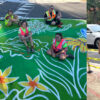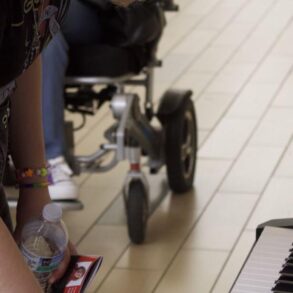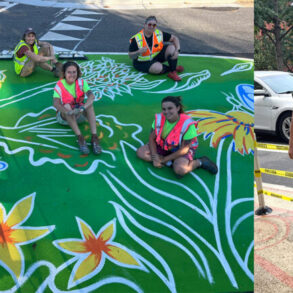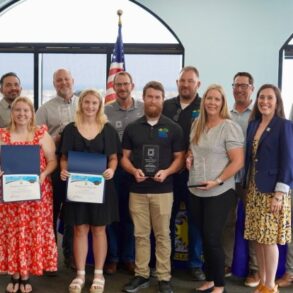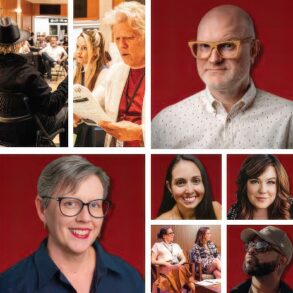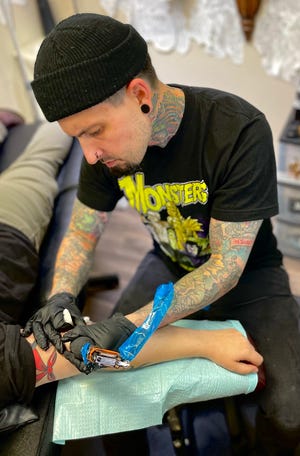
Ask Brad Touchette about how he began his career as a tattoo artist, and he will tell you: “I fell into this thing. Tattoo found me, and I didn’t find tattooing. I was 100% in the right place, at the right time.”
Touchette, owner of Black Hydra Tattoo in Fitchburg, will be on hand at Silver Scream Con 3, set for Sept. 13 to 15 at the DCU Center. It’s a good match for him, with a love of horror that runs as a theme through much of his artistry, including tattoo work.
Touchette recently spoke about his life in the tattoo world, changes he has seen in the industry, and why he believes tattoo artists and customers are better educated and facing a well-drawn future.

First of all, how did you get involved in tattooing as a career?
I’m a business owner now. I was in art school. I went to college to get a (bachelor of fine arts.) I didn’t have a plan for post-college, but I went to get tattooed in 2006, for my first piece. The artist and I got along really, really well. He asked me what I did for art, and whatnot. He had me bring in some art. At the time, it was before the tattoo boom, so I was uncertain … I trained from 2006 to 2007. I got my license in 2007. I started tattooing on my own … and then opened my own studio in 2021.
More Silver Scream coverage
Ice Nine Kills singer talks ‘Silver Scream’ con, touring with Metallica
More:Silver Scream Con adds bloody good double film feature to its feast of fright
Can you tell me about your presence at Silver Scream?
So, I will be working with my friend, Kyle Mackenzie, of North Street Tattoo (in Salem). On Friday, the 13th, we will have some appointments, but also will be available for walkups, and flash (a pre-prepared tattoo design) … and also, booking appointments for horror-related tattoos. There will be another crew on Saturday. Kyle and I will be returning on Sunday.
Horror seems to be a theme for you in career.
I’m a traditional, American style tattooer, but in that context, I’ve always been drawn to darker imagery. People drawn to darker things often belong to the tattoo community. I’ve always been drawn to horror. I used to do a lot of horror portraits, since I’m drawn to the stuff. I used focus more on realist horror portraits, but when not doing subject matter drawn from cinema, I pull a lot of dark imagery in what I do. Skulls, spiders, things with horror imagery, show up in what I do.

It sounds like you do other types of art, in addition to tattooing.
I do a lot of painting in the style of tattoo or flash. I do a lot of water color, and I have it in the studio. That is how I attract clients. Kyle and I will have fine art, hand-painted tattoo flash and watercolor, that will be available.
Have you seen any changes in years that you have been working as a tattoo artist?
Yes. First off, the actual tools for applying tattoos have changed dramatically as technology has caught up with tattooing. Equipment has become more streamlined. We’ve gotten to benefit from mass-manufacturing needles and scrub tubes. ALso, the machines have changed dramatically. The advent of rotary tattoo machines (with a small, rotating motor attached to an amarture to produce an up-and-down motion) has opened up things. Certain machines work better in one genre than in another. The availability of better equipment to work within specific styles.
We also see a more educated customer. You go back 10 years ago, people were walking into a shop, not knowing much about tattooing. Seeing it more highlighted in popular culture, you see people walking into the studio with a better idea of how the industry works.
A lot of artists are concerned about the influence of AI (artificial intelligence.) What are your thoughts?At least from the design creation, I see it as a double-edge sword. AI is opening up opportunities as far as reference goes … but people are always going to want to see the hand of the artist in its work. There is something about human creativity. I think people like seeing something created just for them.
As the tattoo industry has grown more diverse, including more women, and people of color, what has that meant for example communicating with people coming from different backgrounds and different experiences?
I think tattooing has always been more inclusive of the fringe part of the population. It’s a nurturing, safet haven, a more inclusive group of people. I’m happy to see that tattooing, as it has grown, has become more diverse. It opens up a lot of other life experiences, both from the social standpoint — interacting and learning from our customers on a personal note — as well as other viewpoints and perspectives.
Tattooing is also physical work. Are there ergonomic developments that have meant improvements?
Tattooing has become more ergonomic. New machines offer centers of gravity, so are you not putting as much pressure on your wrists and hands … better lighting in the studio, so not as much strain on the eyes. Chairs offer customers more comfort, and allow us to be in a better position to get to them. As tattooing has become more popular, more knowledge exists about the occupation, and so there have been improvements in the industry.
Is this too soon to say — do you see yourself as a tattooist for the balance of your career life?
I intend on tattooing as long as people will continue to get work from me. It’s a job that, if I become independently wealthy, if I worked in another career, this is still what I would want to do as my after-work work. As long as I can afford my quality of life, I don’t see anything I would want to do otherwise.
This post was originally published on this site be sure to check out more of their content


